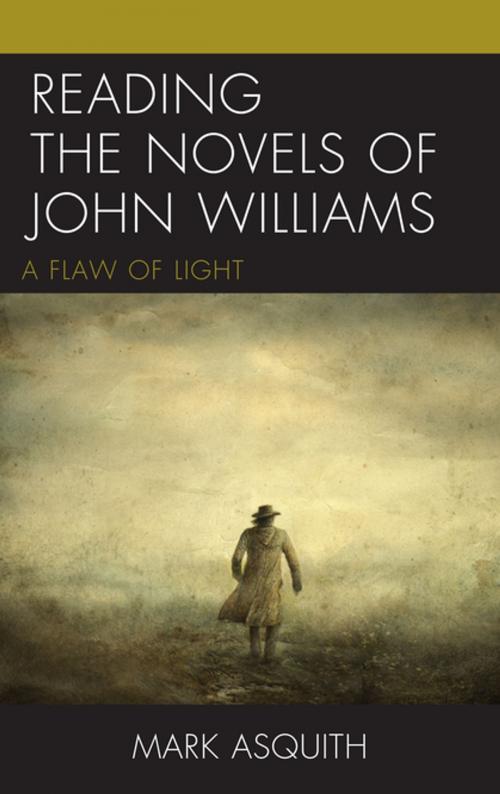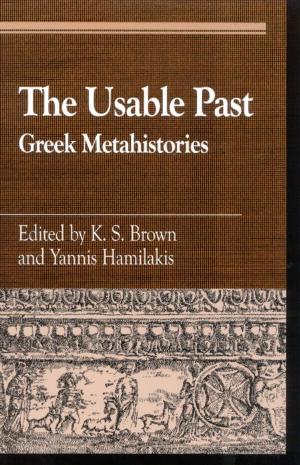Reading the Novels of John Williams
A Flaw of Light
Fiction & Literature, Literary Theory & Criticism, American| Author: | Mark Asquith | ISBN: | 9781498545433 |
| Publisher: | Lexington Books | Publication: | December 6, 2017 |
| Imprint: | Lexington Books | Language: | English |
| Author: | Mark Asquith |
| ISBN: | 9781498545433 |
| Publisher: | Lexington Books |
| Publication: | December 6, 2017 |
| Imprint: | Lexington Books |
| Language: | English |
John Williams, as the New Yorker noted recently, was author of ‘the greatest American novel you’ve have never heard of.’ He died in obscurity, but has enjoyed a literary renaissance due to the worldwide critical acclaim greeting recent reissues of his major novel Butcher’s Crossing, Augustus and particularly Stoner. With films of both Butcher’s Crossing and Stoner already in pre-production it is clear that Williams’ star is in the ascendant. This book is designed to offer a critical introduction to his writing. It is developed through solid scholarly research but is structured and written in a clear and direct style that makes it accessible for academics, students and general readers alike. It offers a clear sense of the novelist’s early life and work, which includes an evaluation of his academic life (he was a professor at the University of Denver) and neglected poetry. The bulk of the book is given over to readings of the three major novels: they offer an appreciation of Williams’ literary craft combined with an assessment of literary and cultural influences and an overview of contemporary critical reactions. Few authors have written such disparate works in terms of subject matter, genre and style, however they are all united in their effort to grapple with deeper existential questions. For whether his characters are riding the Western plains, speaking in the Roman Forum or reading in a dusty library, they all demonstrate Williams’ preoccupation with the ways in which youthful hopes and a strong sense of who we are shaped by life’s accidents. How we make the life meaningful, learn to love another human being, confront failure – these are the well points of Williams’ understated tragedies. Unfortunately, such meditations are rarely fashionable; but neither are they ever unfashionable. George Orwell observed that the only true critic is time: this study makes clear that Williams’ time has come.
John Williams, as the New Yorker noted recently, was author of ‘the greatest American novel you’ve have never heard of.’ He died in obscurity, but has enjoyed a literary renaissance due to the worldwide critical acclaim greeting recent reissues of his major novel Butcher’s Crossing, Augustus and particularly Stoner. With films of both Butcher’s Crossing and Stoner already in pre-production it is clear that Williams’ star is in the ascendant. This book is designed to offer a critical introduction to his writing. It is developed through solid scholarly research but is structured and written in a clear and direct style that makes it accessible for academics, students and general readers alike. It offers a clear sense of the novelist’s early life and work, which includes an evaluation of his academic life (he was a professor at the University of Denver) and neglected poetry. The bulk of the book is given over to readings of the three major novels: they offer an appreciation of Williams’ literary craft combined with an assessment of literary and cultural influences and an overview of contemporary critical reactions. Few authors have written such disparate works in terms of subject matter, genre and style, however they are all united in their effort to grapple with deeper existential questions. For whether his characters are riding the Western plains, speaking in the Roman Forum or reading in a dusty library, they all demonstrate Williams’ preoccupation with the ways in which youthful hopes and a strong sense of who we are shaped by life’s accidents. How we make the life meaningful, learn to love another human being, confront failure – these are the well points of Williams’ understated tragedies. Unfortunately, such meditations are rarely fashionable; but neither are they ever unfashionable. George Orwell observed that the only true critic is time: this study makes clear that Williams’ time has come.















